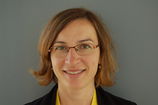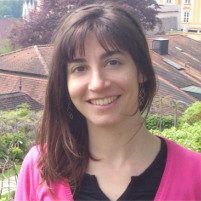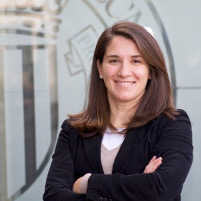
BP-Meet-IoT
1st International Workshop on BP-Meet-IoT
(affiliated with BPM 2017)
Business Process Management (BPM) is the body of methods, techniques and tools to manage the processes of an organization (i.e., the chains of events, activities, and decisions performed in a coordinated manner) in order to achieve (business) goals. Ubiquitous Computing (Ubicomp) enables computing to appear anytime and everywhere, becoming “invisibly” embedded in physical objects to sense and respond to their surrounding environment. This embedding allows building a bridge between the digital and the physical worlds. Ubicomp, heavily based nowadays on Internet-of-Things (IoT) technology, is revolutionizing many areas, including real processes in cyber-physical domains. But the two areas, which are undoubtedly strictly related and with reciprocal influences, have not yet meet significantly in the research and practice. In the traditional sense, processes represent a specific ordering of activities across time and place to serve a business goal. So far, the predominant paradigm to design (business) processes has been based on the Model-Enact paradigm, i.e., the process has been depicted as a (graphical) process model that then could be executed by a Business Process Management System (BPMS). This largely follows a top-down approach. With the emergence of IoT, the Discover-Predict paradigm becomes a comparative paradigm. The Discover-Predict paradigm is characterized as a bottom-up approach where data is generated from physical devices sensing their environment and producing events. These events are then correlated to detect (complex) higher-level events and to discover patterns. Respective higher-level events or patterns can then be used as input for process mining algorithms. An IoT-aware Discover-Predict paradigm has plenty of potentials. However, also several challenges must be meet. Research is necessary in addressing questions such as:
- How does the central role of communication in IoT fit with the control-flow centric view of most BPM approaches?
- How to exploit IoT within BPM and vice versa?
- How to bridge the abstraction gap between low-level (sensor data) and high-level events?
- How to integrate complex-event processing technologies into BPM?
The objective of this workshop is therefore to attract novel research at the intersection of these areas by bringing together practitioners and researchers from both communities that are interested in making IoT-based ubiquitous business processes a reality. BP-Meet-IoT will discuss the current state of ongoing research, industry needs, future trends, and practical experiences.
The topics of the workshop include, but are not limited to:
Ubicomp in the BPM Life-cycle:
- Design/Modelling/Implementation/Deployment/Execution/Monitoring/Optimization of uBPs
Business Process Context:
- IoT-based ubiquitous processes for the BPM-lifecycle (analysis, design, execution, monitoring)
- Context data relevant for IoT-aware BPM
- Context-adaptive BPM
- Analytics of IoT data for BPM
- IoT and Ubiquitous technologies supporting BPM
- Sensor-based task management in BPM
- Privacy and security issues
Business Process Automation and Industrial Cases:
- How can IoT be used to automate activities in ubiquitous business processes?
- How can IoT be used for achieving self-healing BPMS?
- In which business domains IoT can provide a bigger competitive advantage for BPMS?
- Business examples of IoT technologies applied to ubiquitous BPs.
- Ubiquitous BPs for Smart Cities and communities.
Manifesto
The organizers of this workshop together with the growing up BPM-IoT community have just published the following manifesto resulting from the "Fresh Approaches to Business Process Modeling"(16191) seminar held in Dagstuhl in May 2016. If you are willing to join this working group, please contact Massimo Mecella.
Program
| 08:45-09:00 | Workshop welcome |
| 09:00-10:30 | BPM and IoT: a Dream Team? Invited Keynote Dr. Barbara Weber |
| 10:30-11:00 | Coffee Break |
| Session 1 | |
| 11:00-11:30 | Technology-Enhanced Process Elicitation of Worker Activities in Manufacturing Sönke Knoch, Shreeraman Ponpathirkoottam, Peter Fettke and Peter Loos |
| 11:30-12:00 | Discovering process models of activities of daily living from sensors Marco Cameranesi, Claudia Diamantini and Domenico Potena |
| 12:00-12:30 | An habit is a process: a BPM-based approach for smart spaces Francesco Leotta, Massimo Mecella and Daniele Sora |
| 12:30-14:00 | Lunch |
| Session 2 | |
| 14:00-14:20 | From BPM to IoT Sylvain Cherrier and Varun Deshpande |
| 14:20-15:30 | Panel "BP meet IoT : new wine in old bottles?"
Moderator : Massimo Mecella Panelist : Barbara Weber, Massimiliano de Leoni, Marcello de la Rosa, Victoria Torres, Estefania Serral Asensio |
Invited Keynote
Barbara Weber is Professor and Head of Software Engineering Section at the Department of Applied Mathematics and Computer Science at Technical University of Denmark (DTU), Denmark, and also Associate Professor (tenured) at the University of Innsbruck, Austria. She has published more than 120 referred papers and articles in conferences and journals like Nature Scientific Reports, Information & Software Technology, Information Systems, Software and System Modeling, Data and Knowledge Engineering, Requirements Engineering. She is editorial board member for the Information Systems journal and the Computing journal. Moreover, she is member of the IEEE Taskforce on Process Mining; Steering Committee member of the BPM conference, Program Board member of the CAiSE conference series and Senior PC member of the BPM conference series. She was PC Chair of BPM 2013 and XP 2013, and General Chair of BPM 2015. Barbara is a regular keynote speaker at international conferences and workshops, for example, at EDOC 2014, INFORSID 2014, and PROFES 2017. Research interests include business process management, process modeling and mining, adaptive and evolving software systems including neuro-adaptive software systems, human and cognitive aspects of information systems engineering. H-number 38 with 5554 citations (according to Google Scholar, July 2017).
Organization


Dr. Massimo Mecella

Dr. Estefania Serral
Leuven Institute for Research on Information Systems (LIRIS)

Program Committee
- Jan Mendling, Vienna University of Economics and Business
- Manfred Reichert, University of Ulm, Germany
- Marta Indulska, The University of Queensland, Australia
- Vicente Pelechano, Universidad Politécnica de Valencia, Spain
- Hajo Reijers, Eindhoven University of Technology, The Netherlands
- Francisco Ruiz, University of Castilla-La Mancha, Spain
- Antonio Ruiz-Cortés, University of Seville, Spain
- Barbara Weber, Technical University of Denmark, Denmark
- Bart Baesens, KU Leuven
- Ferry Pramudianto, North Carolina State University, USA
- Adrian Mos, Xerox, France
- Matthias Weidlich, Imperial College London, United Kingdom
- Mathias Weske, Hasso-Plattner-Institut at the University of Potsdam, Germany
- Pnina Soffer, University of Haifa, Israel
- Gero Decker, Signavio GmbH, Germany
- Anne Monceaux, Airbus Group Innovations, France
- Sylvain Cherrier, University Marne-la-Vallée, France
- Armando Walter Colombo, University of Applied Sciences Emden/Leer, Schneider Electric, Germany
- Alaaeddine Yousfi, Hasso-Plattner-Institut at the University of Potsdam, Germany
- Selmin Nurcan, Universite Paris 1-Pantheon-Sorbonne, France
- Andrea Delgado, INCO, Universidad de la República, Uruguay
- Avigdor Gal, Technion – Israel Institute of Technology, Israel
- Christian Janiesch, University of Wurzburg, Germany
- Udo Kannengießer, Metasonic GmbH, Germany
- Andreas Oberweis, Karlsruhe Institute of Technology, Germany
- Jianwen Su, University of California at Santa Barbara, USA
- Liang Zhang, Fudan University, China
- Andrea Marrella, Sapienza Università di Roma, Italy
Important Dates
Submissions & Registration
Manuscripts (research and industrial papers) should be no longer than 12 pages including references, figures and tables and must be formatted in accordance with the LNCS/LNBIP guidelines specified by Springer.
The title page must contain a short abstract and a short list of keywords. Papers should be submitted electronically through easychair.
Relevant members of the international community working on IoT and BPM topics will review all submissions. Each paper will be reviewed by 3 PC members in order to guarantee that only high-quality papers are accepted. All the workshop papers will be published by Springer as a post-proceeding volume (to be sent around 4 months after the workshop) in their Lecture Notes in Business Information Processing (LNBIP) series.
It is mandatory that at least one author will register and present the paper during the workshop.